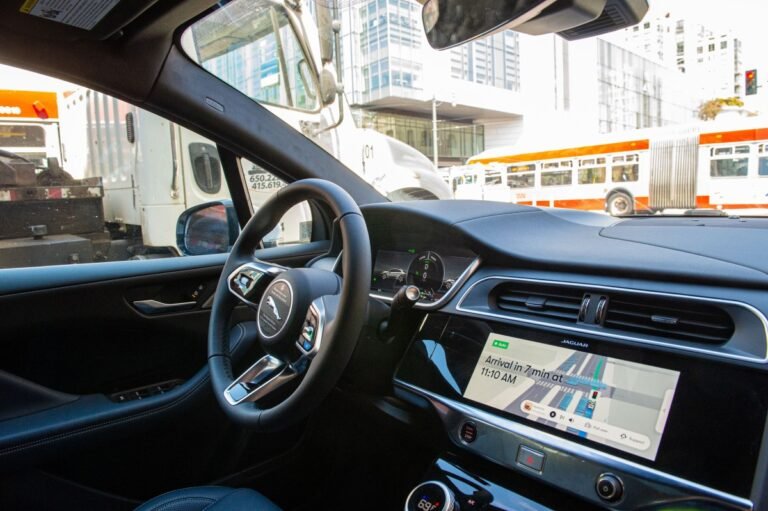
Waymo has voluntarily issued a software recall to all 672 of its Jaguar I-Pace robotaxis after one of them collided with a telephone pole.
This is Waymo’s second recall.
NHTSA confirmed to TechCrunch that it has received Waymo’s recall documents and is processing them for publication on its website.
The accident that prompted Waymo’s second recall happened on May 21 when a Waymo vehicle in Phoenix, driving without a human safety operator, collided with a telephone pole in an alley during a low speed pullover maneuver.
The Waymo vehicle slowed down to pull over and struck a pole at a speed of 8 miles per hour.
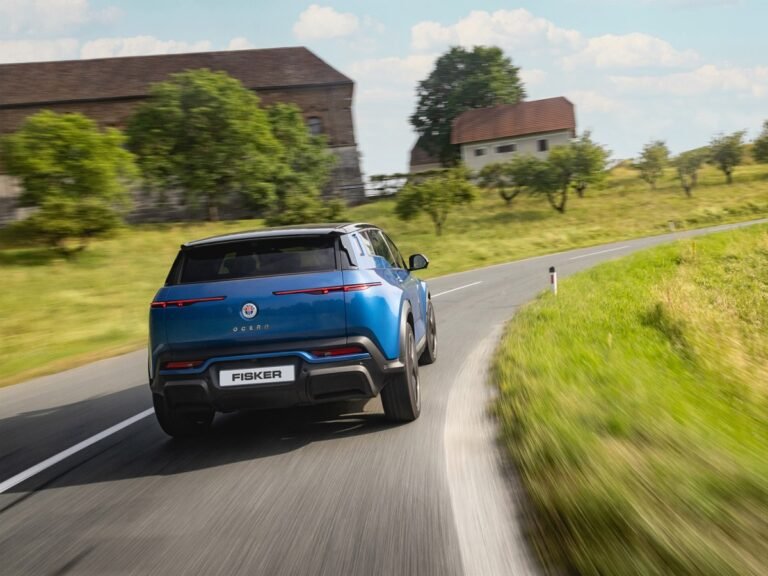
Fisker is issuing the first recall for its all-electric Ocean SUV because of problems with the warning lights, according to new information published by the National Highway Traffic Safety Administration.
The recall technically only applies to all 6,864 Ocean SUVs in the US, as other regions have their own safety regimes.
The recall comes after months of problems with the Ocean SUV, and at a time when Fisker is on the brink of bankruptcy.
This recall is not related to any of the four active investigations NHTSA has launched into the Ocean.
With those, the agency is probing inadvertent automatic emergency braking, sudden braking loss, vehicle rollaway and doors that won’t open.
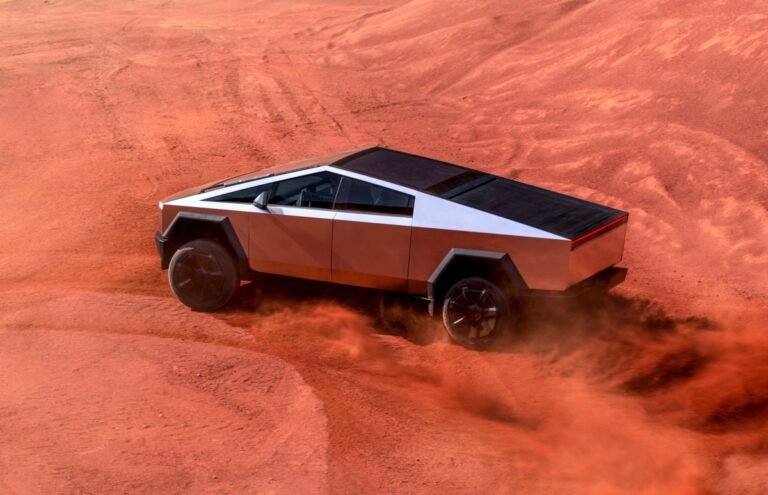
Tesla is recalling all 3,878 Cybertrucks that it has shipped to date, due to a problem where the accelerator pedal can get stuck, putting drivers at risk of a crash, according to the National Highway Traffic Safety Administration.
Reports of problems with the Cybertruck’s accelerator pedal started popping up in the last few weeks.
Tesla said it first received a notice of one of these accelerator pedal incidents from a customer on March 31, and then a second one on April 3.
It also told NHTSA that it has started building Cybertrucks with a new accelerator pedal, and that it’s fixing the vehicles that are in transit or sitting at delivery centers.
While the Cybertruck only first started shipping late last year, this is not the vehicle’s first recall.
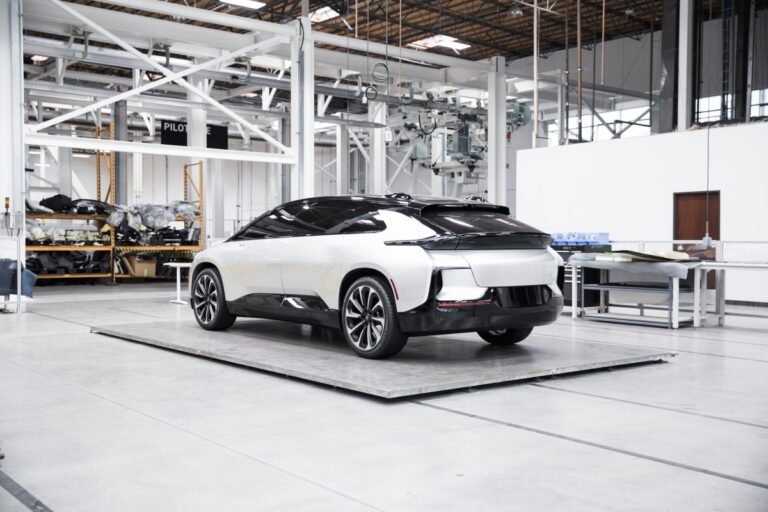
Troubled EV startup Faraday Future has issued its first recall, covering all 11 vehicles it built last year, as it fights to hold onto its Los Angeles headquarters.
The recall centers around a problem with the warning light for the airbags in Faraday Future’s FF91 SUV.
Faraday Future says it will “schedule concierge pick up, and redelivery, of the owners’ vehicles” to fix the software.
The landlord of its LA headquarters is trying to evict the startup after Faraday missed multiple lease payments.
Still, it is remarkable that after nearly 10 years and close to $4 billion in losses, Faraday Future has even made it to the point that it needs to issue a recall at all.
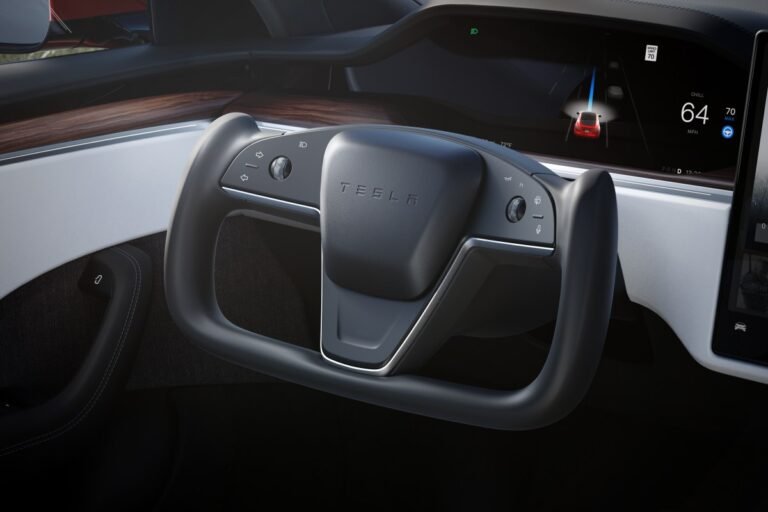
Tesla’s fix for its Autopilot recall of more than 2 million vehicles is being called “insufficient” by Consumer Reports, following preliminary tests.
While the testing isn’t comprehensive, it shows questions remain unanswered about Tesla’s approach to driver monitoring — the tech at the heart of the recall.
It focused heavily on the Autosteer feature, which is designed to keep a car centered in a lane on controlled-access highways, even around curves.
But NHTSA said in documents released last week that it viewed those checks as “insufficient to prevent misuse.”Tesla does not restrict the use of Autosteer to controlled-access highways, though.
“None of this is very prescriptive or explicit in terms of what it is they’re going to [change],” Funkhouser says.
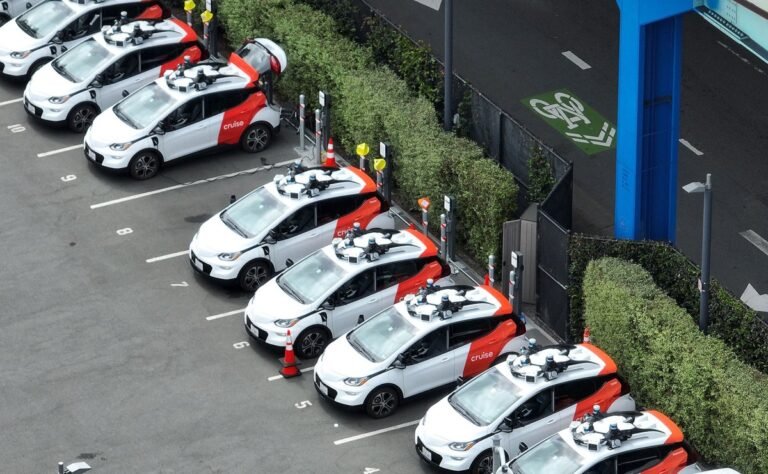
In this edition of WiR, we cover Cruise slashing 24% of its driverless workforce (and, relatedly, Tesla’s autopilot recall), Twitch’s new nudity policy conundrum, Adobe’s updated app design language and Instagram launching a generative AI–powered background editor.
Most readGemini comes to more apps: Google’s Gemini GenAI models — specifically Gemini Pro, a lightweight version of a more capable model, Gemini Ultra, set to arrive in the coming months — is making its way into more Google products.
Duet AI, the company’s suite of dev assistance tools for code completion and generation, will soon start using Gemini.
So will AI Studio (formerly MakerSuite), Google’s AI app design experience on the web, and Vertex AI, the tech giant’s managed AI dev platform for enterprises.
Called Spectrum 2 (no surprise there), the new design system backs off a bit from the austerity of the current Spectrum design and adds quite a few more splashes of color.









